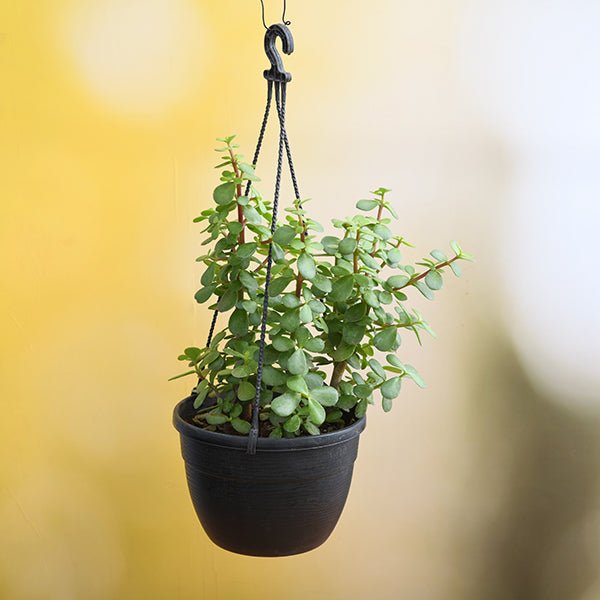
Elephant bush, Portulacaria afra, Jade plant (Hanging Basket) - Plant
(MRP Inclusive of all taxes)
- Shipping ₹79 for entire order
- Dispatch in 7 days
- Country of origin: India

(MRP Inclusive of all taxes)
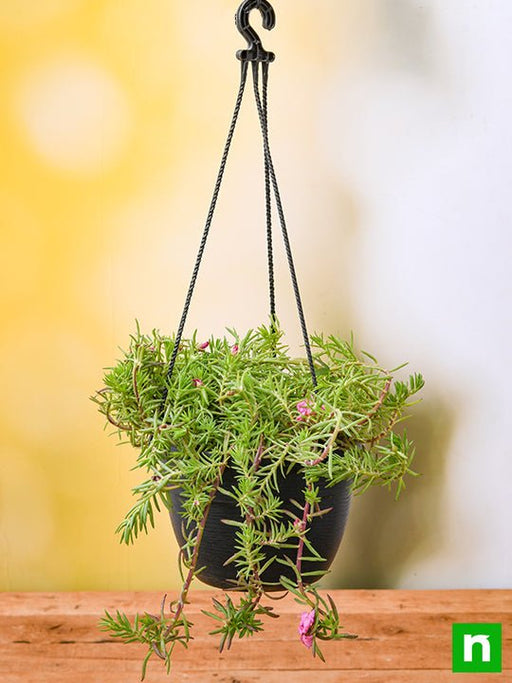
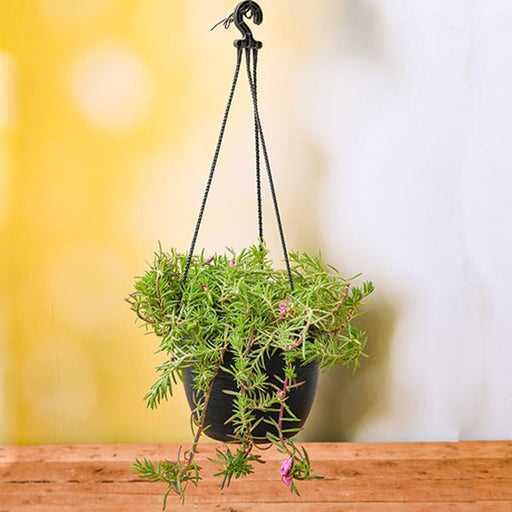 Save 18%
Save 18%
Portulaca, 9 O'Clock (Any Color, Hanging Basket) - Plant The Portulaca, commonly known as 9 O'Clock, is a vibrant and resilient succulent ...
View full details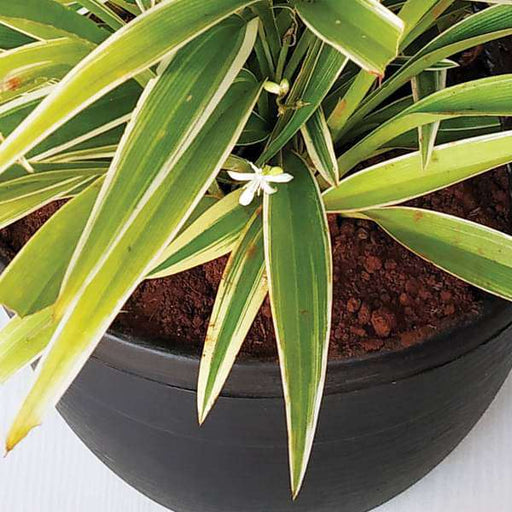
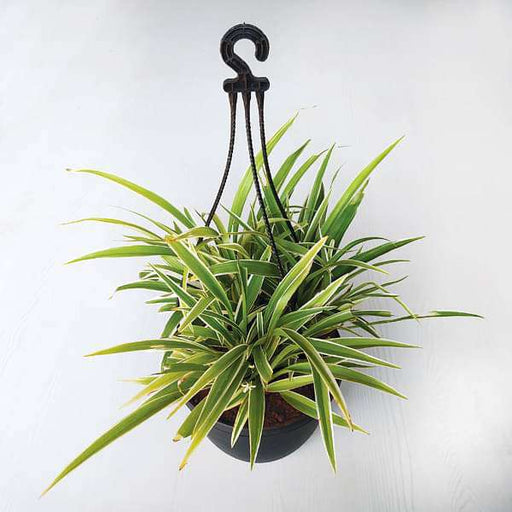 Save 17%
Save 17%
Chlorophytum, Spider Plant (Hanging Basket) The Chlorophytum, commonly known as the Spider Plant, is a resilient and attractive houseplant...
View full details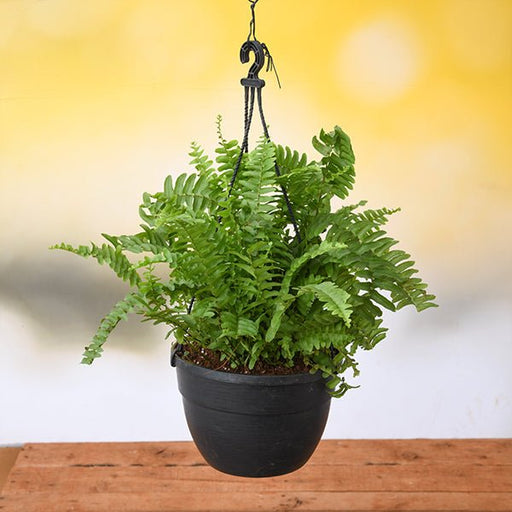 Save 23%
Save 23%
Nephrolepis exaltata, Boston Fern (Hanging Basket) The Boston Fern, scientifically known as Nephrolepis exaltata, is a lush, evergreen per...
View full details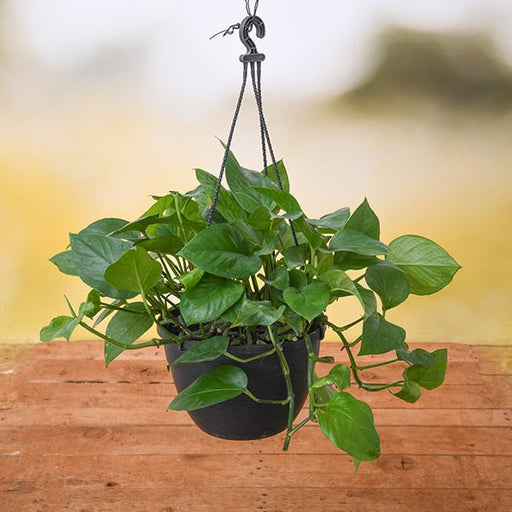 Save 17%
Save 17%
Money Plant, Scindapsus Green (Hanging Basket) The Money Plant, scientifically known as Scindapsus aureus, is a popular houseplant celebra...
View full details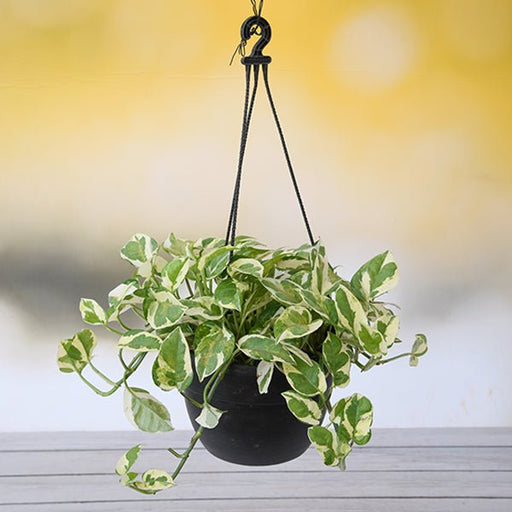 Save 17%
Save 17%
Money Plant Marble Prince, Scindapsus N Joy (Hanging Basket) The Money Plant Marble Prince, scientifically known as Scindapsus N Joy, is a...
View full details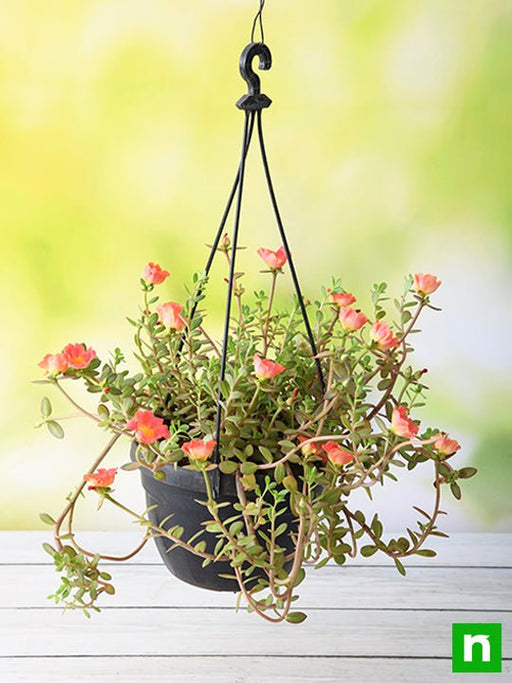
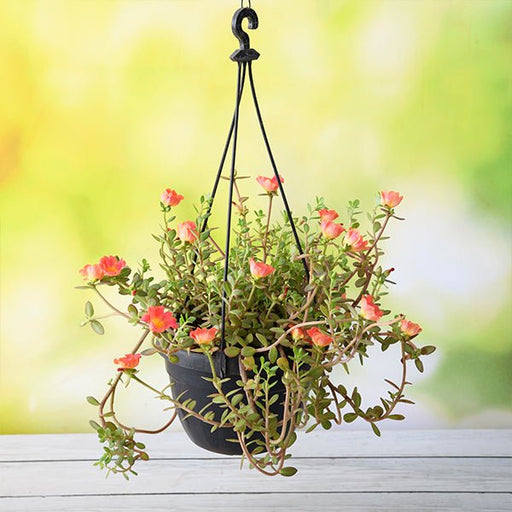 Save 18%
Save 18%
Portulaca, 10 O'Clock (Any Color, Hanging Basket) - Plant Introducing the vibrant Portulaca, commonly known as 10 O'Clock, a stunning addi...
View full details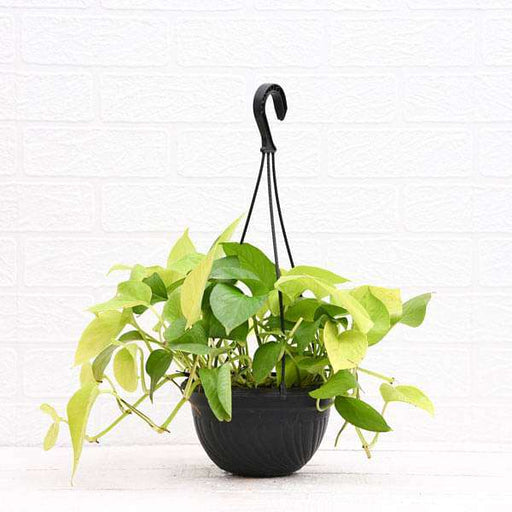 Save 92%
Save 92%
Money Plant Golden (Scindapsus Golden) - Hanging Basket The Money Plant Golden, scientifically known as Scindapsus aureus, is a stunning i...
View full details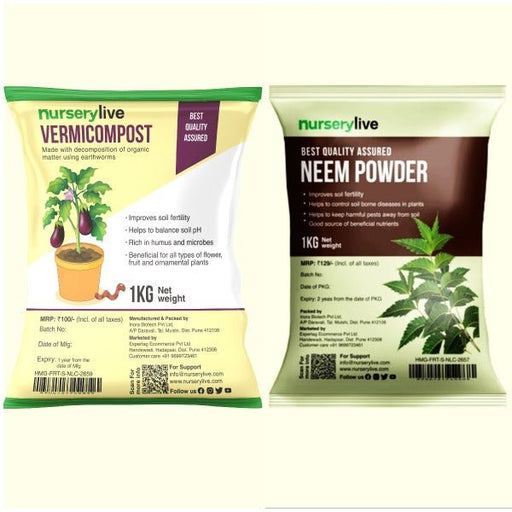 Save 15%
Save 15%
Pack of Vermicompost and Neem Cake for House Plants Transform your indoor garden with our premium Pack of Vermicompost and Neem Cake, spec...
View full details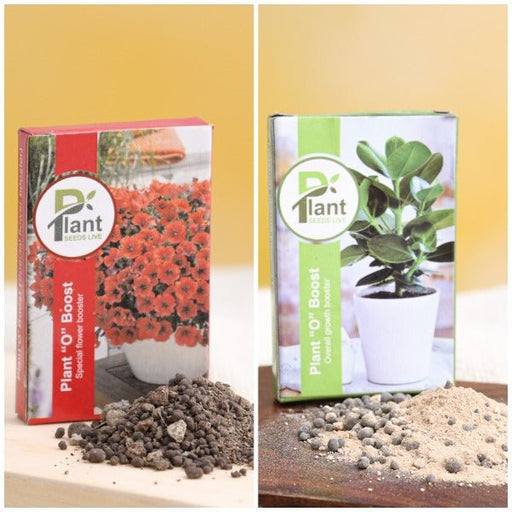
Pack of Plant Growth and Flower Boosters Unlock the full potential of your garden with our Pack of Plant Growth and Flower Boosters! This ...
View full details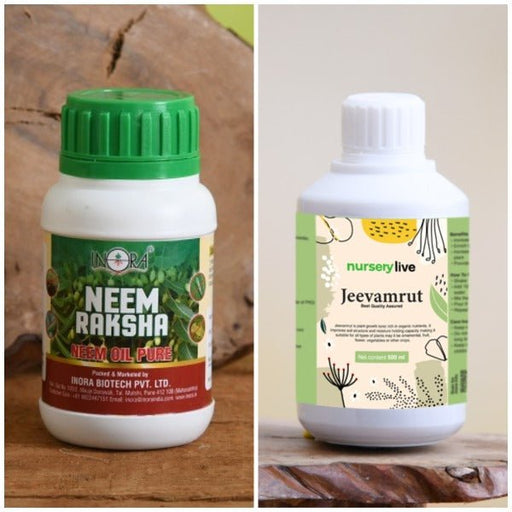 Save 38%
Save 38%
Combo of Jeevamrut and Neem Raksha for Easy Growth and Protection of Houseplants Transform your indoor garden with our exclusive combo of ...
View full details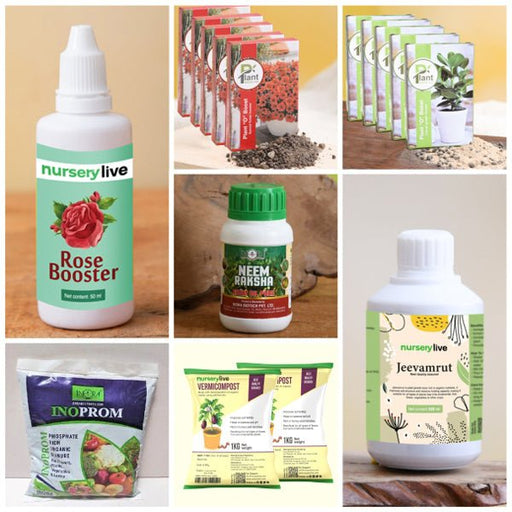 Save 22%
Save 22%
Plant Nutrients Kit (Pack of 16) for a Healthy Garden Transform your garden into a lush paradise with our Plant Nutrients Kit, featuring 1...
View full details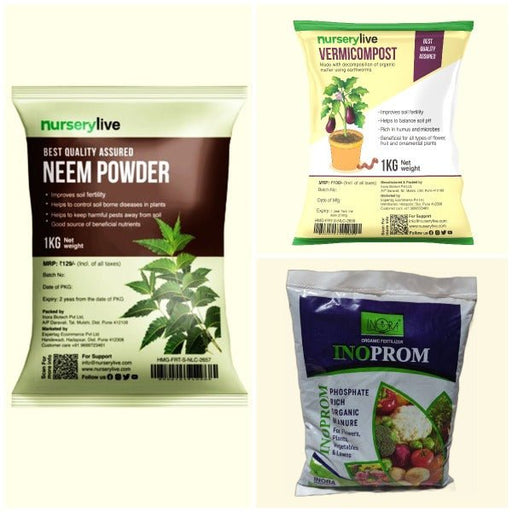 Save 16%
Save 16%
Combo of Top Plant Fertilizers Elevate your gardening game with our exclusive Combo of Top Plant Fertilizers, featuring two bags of premiu...
View full details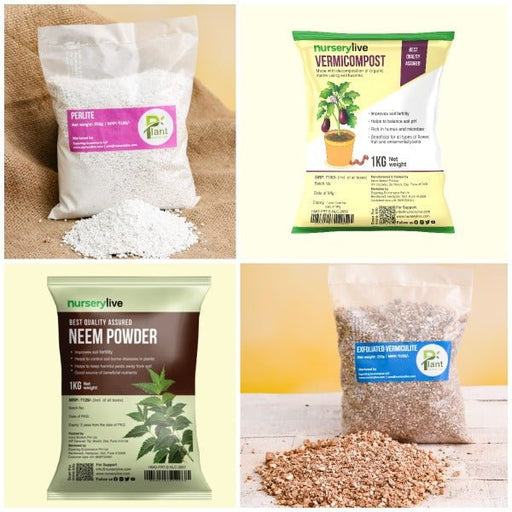 Save 24%
Save 24%
Pack of 4 Additives to Make Soil Healthy and Nutrient Rich Transform your garden into a thriving ecosystem with our Pack of 4 Additives de...
View full details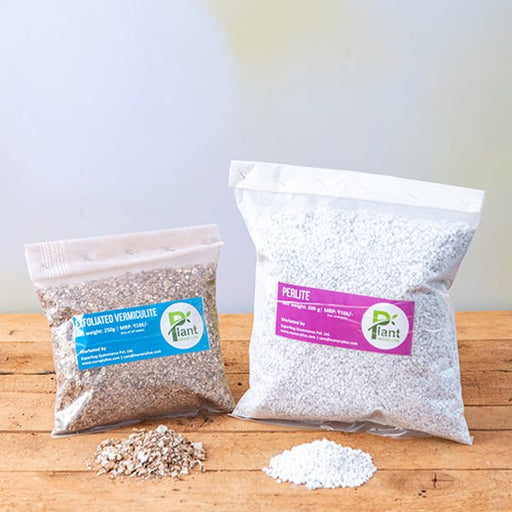 Save 30%
Save 30%
Transform your gardening experience with our premium Combo of Perlite and Vermiculite. This unique blend is designed to enhance soil aeration and ...
View full details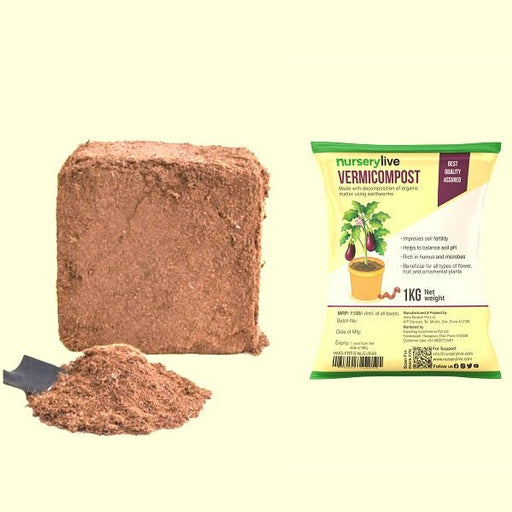 Save 27%
Save 27%
Combo of 2 Vermicompost and Cocopeat - Enrich Your Soil Naturally! Transform your garden into a thriving ecosystem with our Combo of 2 Ver...
View full details
 Save 35%
Save 35%
Best 6 Plants for Perfect Indoor Garden Transform your living space into a lush oasis with our curated collection of the Best 6 Plants for a...
View full details
 Save up to 50%
Save up to 50%
Mini Succulent Garden Pack Transform your space with our Mini Succulent Garden Pack, featuring a delightful collection of 4 any variety beautiful s...
View full details
 Save 30%
Save 30%
5 Best Fragrant Plants Transform your garden or indoor space into a fragrant paradise with our curated selection of the 5 Best Fragrant Plants. Th...
View full details
 Save 24%
Save 24%
Set of 2 Bonsai Looking Grafted Adeniums Transform your indoor or outdoor space with our exquisite Set of 2 Bonsai Looking Grafted Adenium...
View full details Save 45%
Save 45%
Top 4 Die Hard Succulents Pack Transform your indoor or outdoor space with our Top 4 Die Hard Succulents Pack, featuring a curated selecti...
View full details
 Save 30%
Save 30%
5 Best Indoor Plants Pack Transform your living space into a lush oasis with our '5 Best Indoor Plants Pack.' This carefully curated collection fe...
View full details
 Save 25%
Save 25%
Set of 4 Evergreen Air Purifier Plant Pack Transform your indoor space into a lush, green oasis with our Set of 4 Evergreen Air Purifier Pla...
View full details| SrNo | Item Name |
|---|---|
| 1 | Elephant bush, Portulacaria afra, Jade plant (Hanging Basket) - Plant |
The Elephant Bush, scientifically known as Portulacaria afra, is a succulent plant native to South Africa. This hardy plant features thick, fleshy leaves that can vary in color from deep green to a beautiful reddish hue. When grown in a hanging basket, its trailing vines create a stunning visual display, making it a perfect addition to any indoor or outdoor space.
What makes the Elephant Bush special is its ability to thrive in various conditions, making it an ideal choice for both novice and experienced gardeners. This plant is not only aesthetically pleasing but also serves as a natural air purifier, contributing positively to your indoor environment.
One of the standout features of the Elephant Bush is its resilience. It can tolerate drought and requires minimal maintenance, making it a sustainable choice for eco-conscious individuals. Additionally, it is known to attract butterflies and other pollinators, enhancing your garden's biodiversity.
If you think caring for an elephant bush is as easy as pie, you’re partially right—just make sure it’s not a soggy pie! This succulent thrives on neglect, but it still appreciates a little TLC. Water it when the soil is dry, and it’ll reward you with lush, green leaves that could make even a cactus jealous. Just remember, overwatering is the enemy; treat it like a diva who only wants the finest things in life—like dry soil!
This plant isn’t just a pretty face; it’s a multitasker! Portulacaria afra, or elephant bush, is known for its air-purifying abilities, making it the eco-friendly roommate you never knew you needed. It’s also a great conversation starter—who wouldn’t want to chat about a plant that can survive in the harshest conditions? Plus, it’s a natural pest deterrent, so it’s like having a tiny bodyguard for your other plants!
The jade plant, often mistaken for a lucky charm, is more than just a pretty succulent. In many cultures, it symbolizes prosperity and good fortune. So, if you’re looking to attract wealth, consider adding this green gem to your collection. Just don’t expect it to pay your bills; it’s more of a “bring good vibes” kind of plant. Place it in your home, and watch as it silently whispers sweet nothings of abundance into your life.
Who says plants can’t have a little fun? Hanging baskets are the perfect way to let your elephant bush show off its cascading beauty. Imagine it draping down like a green waterfall, turning your space into a botanical wonderland. Mix and match with other trailing plants for a lush, layered look that’ll have your friends green with envy. Just make sure it’s in a spot where it can soak up the sun—because even plants need their vitamin D!
Designing a succulent garden is like creating a masterpiece, but with less mess and more green! The elephant bush is a fantastic centerpiece, surrounded by other succulents that complement its charm. Think of it as a plant party where everyone gets along. Use varying heights and colors to create visual interest, and don’t forget to add some decorative stones for that extra pizzazz. Your garden will be the talk of the town—or at least the talk of your backyard!
Bringing an elephant bush indoors is like inviting a little piece of nature into your home. Not only does it add a pop of green, but it also helps purify the air, making your living space feel fresher. Plus, it’s low-maintenance, so you can spend more time binge-watching your favorite shows instead of worrying about plant care. Just remember to give it a sunny spot, and it’ll thrive like a champ—no green thumb required!
Want to expand your elephant bush empire? Propagation is the way to go! Snip a healthy stem, let it dry for a day, and then plant it in well-draining soil. It’s like giving your plant a second chance at life, and it’s surprisingly easy. Soon, you’ll have a mini jungle of elephant bushes, and your friends will be begging for cuttings. Just be prepared for the inevitable “plant parent” questions that come with your newfound status!
The elephant bush is a picky eater when it comes to soil, but don’t worry—it’s not as high-maintenance as it sounds. It prefers well-draining soil that allows its roots to breathe. Think of it as a plant that enjoys a spa day—no soggy feet allowed! A cactus mix or a homemade blend with sand and perlite will do the trick. Your elephant bush will thank you with vibrant growth and a happy dance (or at least a few new leaves).
If you want your elephant bush to thrive, it’s all about the light! This succulent loves bright, indirect sunlight, so think of it as a sunbather that prefers a little shade. Too much direct sun can scorch its leaves, while too little can leave it feeling blue. Find that sweet spot where it can soak up the rays without getting burned, and you’ll have a happy, healthy plant that’s ready to show off its leafy glory.
Even the toughest plants can face a pest invasion, but fear not! The elephant bush is relatively pest-resistant, making it a low-stress addition to your plant family. However, if those pesky critters do show up, a simple spray of neem oil or insecticidal soap will send them packing. Think of it as a plant superhero, ready to defend your green kingdom. Keep an eye out, and your elephant bush will remain a fortress of foliage!
Choosing the right container for your elephant bush is like picking the perfect outfit—it can make all the difference! Opt for a pot with drainage holes to keep those roots happy and healthy. Terracotta pots are a classic choice, allowing for breathability, while colorful ceramic pots can add a fun pop to your decor. Just remember, the container should complement your plant’s personality—because every elephant bush deserves to strut its stuff in style!
The Elephant bush, or Portulacaria afra, is a succulent that resembles a miniature tree. It’s like the cool cousin of the jade plant, thriving in hanging baskets and bringing a touch of the wild indoors. With its plump leaves and easy-going nature, it’s the perfect plant for those who want greenery without the fuss.
Caring for your Elephant bush is a breeze! Just give it bright, indirect sunlight, water it when the soil dries out, and watch it thrive. It’s like the low-maintenance friend who always shows up to the party. Just avoid overwatering, or it might throw a tantrum and start dropping leaves!
Absolutely! The Elephant bush loves a good hanging basket. It’s like a plant that enjoys a scenic view. Just ensure the basket has good drainage, and let those trailing stems dangle like they’re on a vacation. Your plant will be the envy of all the other houseplants!
Your Elephant bush craves well-draining soil, like a diva who only wears designer. A cactus or succulent mix works wonders, allowing those roots to breathe and preventing soggy situations. Remember, it’s all about keeping it dry and fabulous!
Water your Elephant bush when the top inch of soil feels dry, like checking if your pizza is ready. Typically, this means every 2-3 weeks, but it’s always best to err on the side of caution. Overwatering is a party crasher for succulents!
Fertilizing your Elephant bush is like giving it a little boost of confidence. During the growing season, a diluted succulent fertilizer once a month will do the trick. Just don’t overdo it; too much fertilizer can turn your plant into a drama queen!
Good news for pet parents! The Elephant bush is non-toxic to cats and dogs, making it a safe addition to your plant family. It’s like having a plant that won’t cause any drama at home. Just keep an eye on those curious pets; they might still want to nibble!
Yes, you can! Propagating your Elephant bush is as easy as pie. Just take a cutting, let it dry for a day, and then plant it in well-draining soil. Soon, you’ll have a mini jungle of Elephant bushes, and you can start your own succulent empire!
Your Elephant bush is generally pest-resistant, but watch out for mealybugs and spider mites. They’re like uninvited guests at a party. If you spot them, a gentle wipe with soapy water or neem oil will send them packing. Keep your plant pest-free and fabulous!
The Elephant bush loves bright, indirect light, like a sunbather seeking the perfect spot. Too much direct sunlight can scorch its leaves, while too little can make it sulky. Aim for a happy medium, and your plant will thrive like it’s on a tropical vacation!
Absolutely! The Elephant bush is a fantastic indoor companion. It thrives in bright spaces and adds a touch of greenery to your home. Just make sure it gets enough light, and it’ll be the life of your indoor jungle party!
Having an Elephant bush is like having a little piece of nature indoors. It purifies the air, boosts your mood, and requires minimal care. Plus, its unique look adds character to any space. It’s the perfect plant for those who want to impress without the hassle!